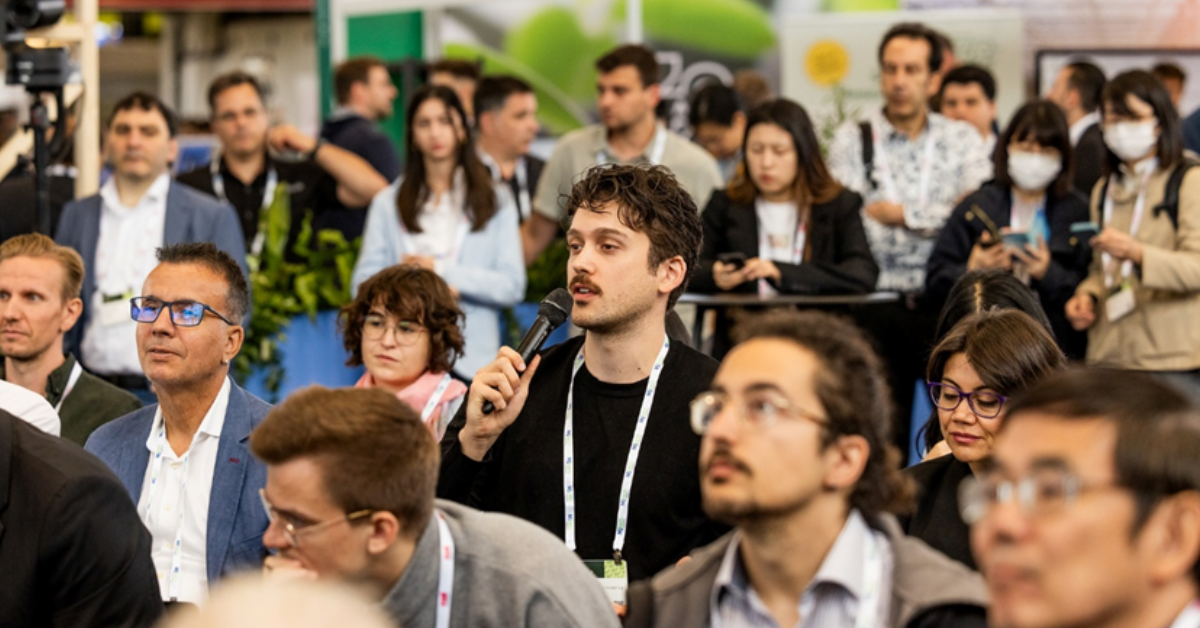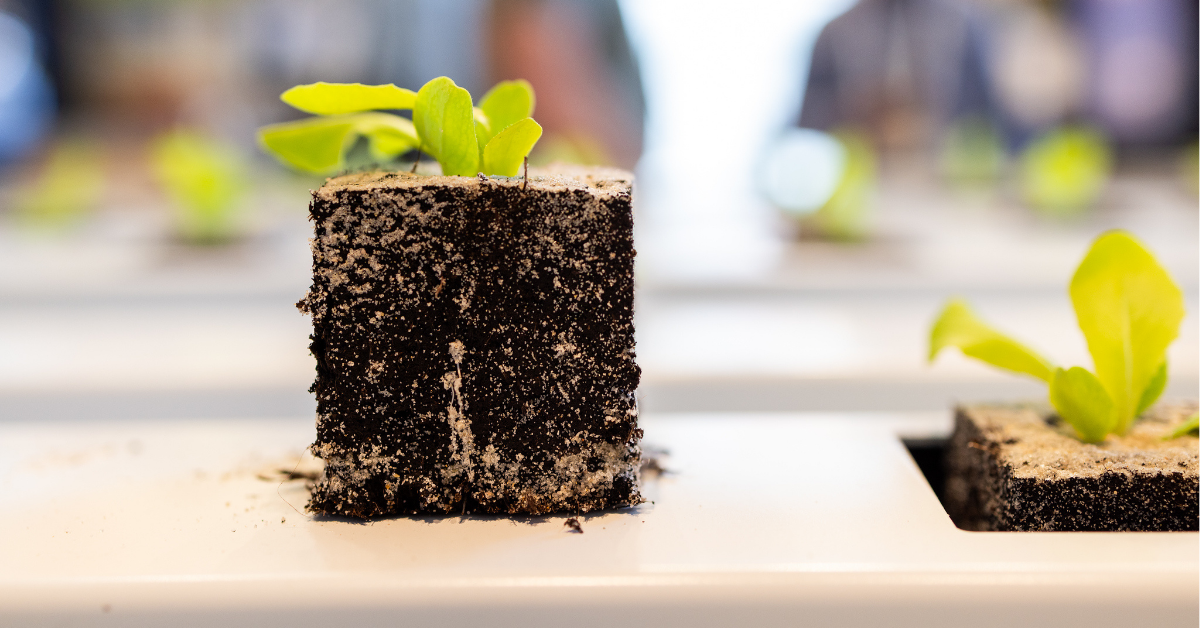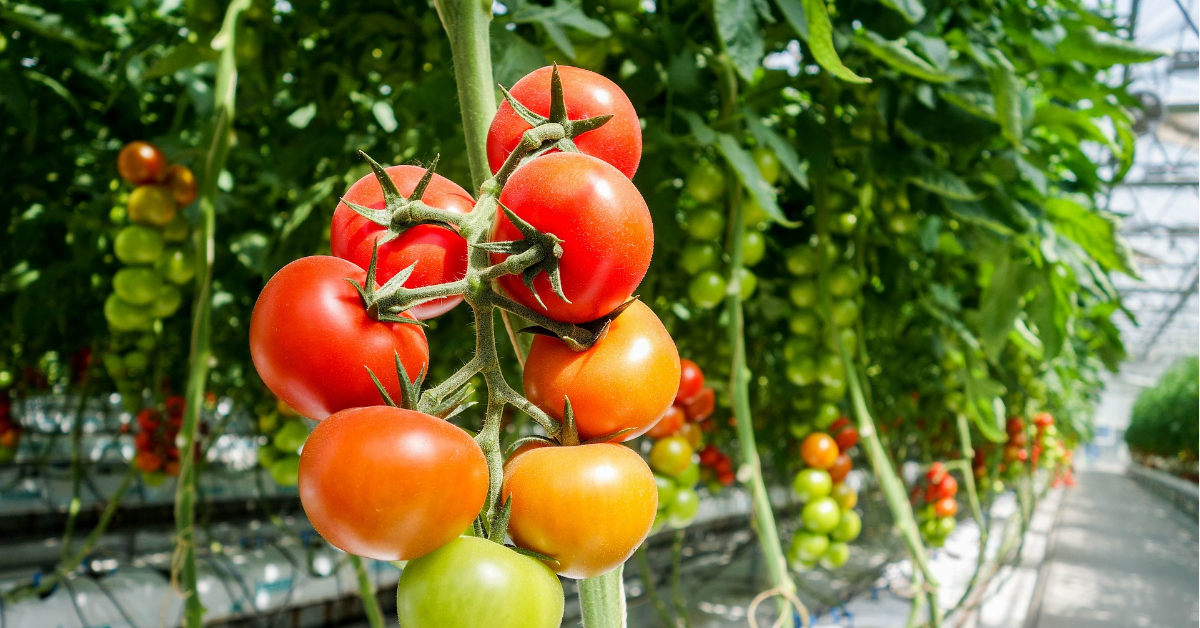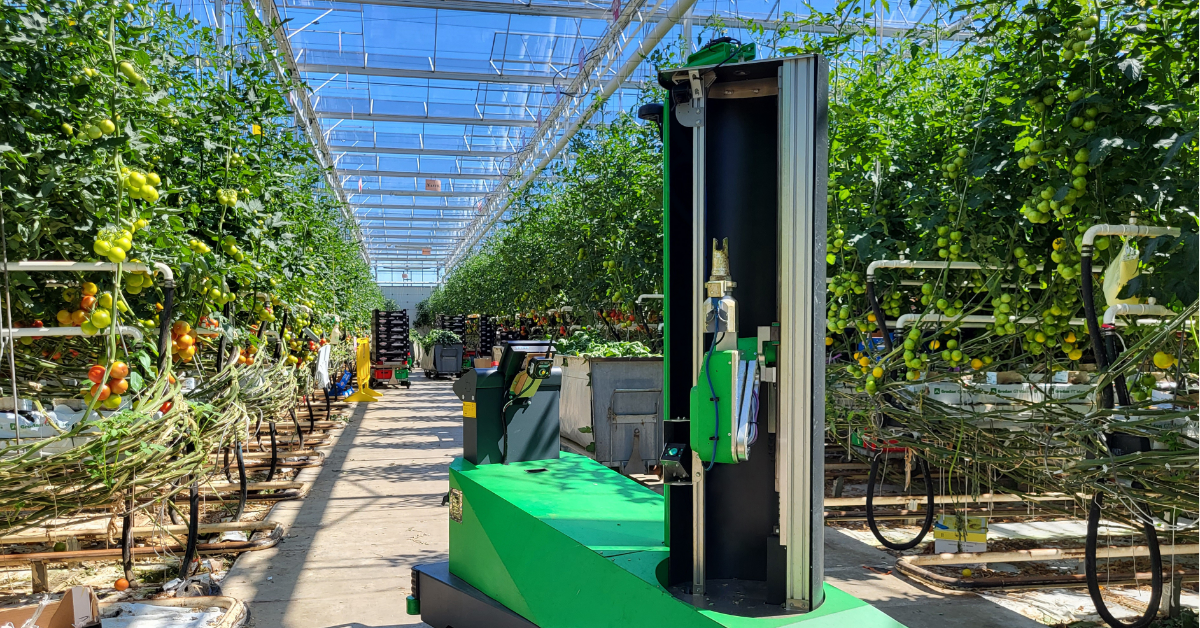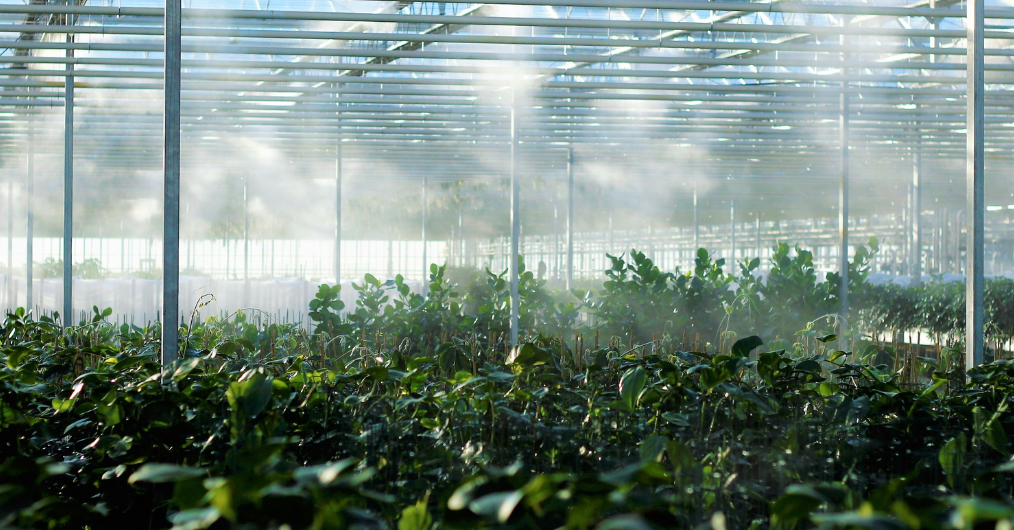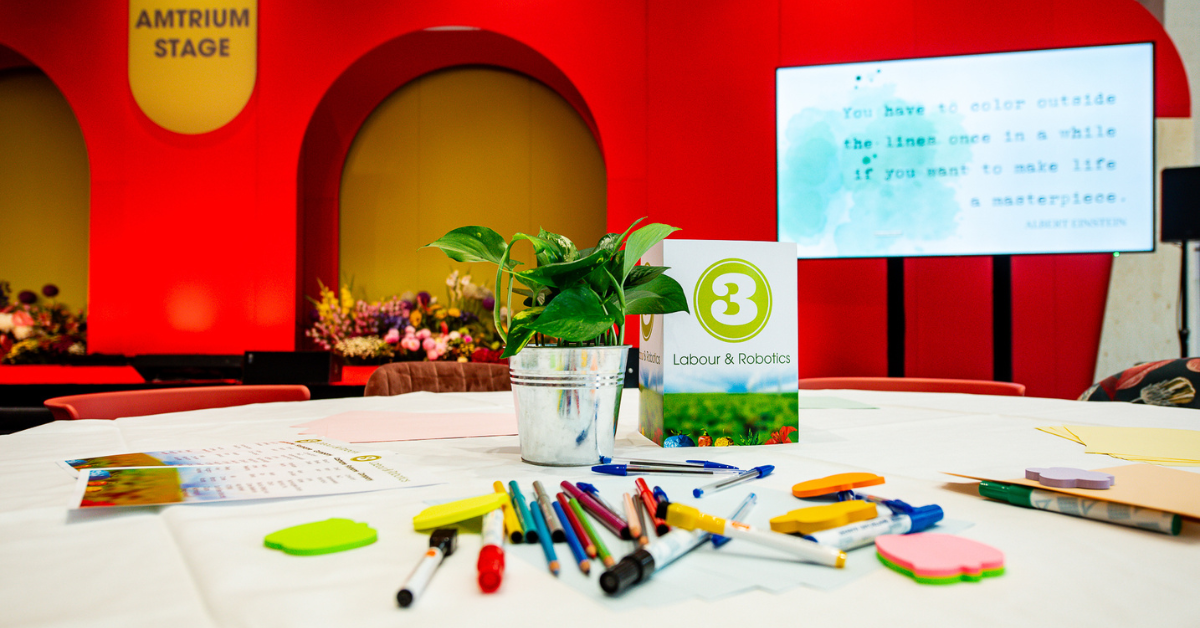‘Selling health could bring economic value’
'Passion' embodies our unlimited commitment to crops, people, and technology, driving innovation across the horticulture sector. Building on the enduring importance of personal touch, GreenTech is excited to strengthen connections and unveil new initiatives designed to inspire growth and collaboration within the industry. In a series of articles, the passion within horticulture worldwide will be highlighted from different angles. This time we look back at some highlights of the knowledge programme at GreenTech Amsterdam.
Eatthis and Caring Doctors
Caring Doctors is an organization of doctors and other healthcare professionals who are committed to a sustainable, mainly plant-based food transition. At GreenTech Amsterdam, Patrick Deckers told how Caring Doctors teams up with horticulture to succeed in that mission. Deckers is one of the initiators of Caring Doctors. He was an orthopaedic surgeon for 20 years. “I quit my job to start Caring Doctors. It’s a fast growing organization of healthcare professionals who want to change the food system in our cure and health institutes, in connection with food produce. Why? Because it is better for our health and for the planet.”
As a Doctor Deckers saw more and more unhealthy patients. “When you have a specific medical condition, the predictability is quite good when people are overall healthy. That’s why we want to focus on that witch prevention and a change of lifestyle with more healthy food, mainly plant based. 100 grams more fruit and vegetables gives you less chance of welfare diseases. But the current food system gives us a lot of unhealthy food now. We want to change that.”
Connect with the world
To do so, Caring Doctors started a partnership with EatThis. EatThis. is a foundation that connects the world of food production in horticulture with society, art, healthcare and the world beyond the greenhouse. “We saw the need of connecting horticulture with the rest of the world”, said Rick Gitzels of EatThis. “We tend to stay in our greenhouse and tell our story, but we don’t really connect with the world around it. That’s our goal. As EatThis. we believe that food producers can be the original pharmacy. They produce healthy vegetables, the start of everything. We therefore organize in residencies to connect all kinds of people with horticulture. We also did that with Caring Doctors.”
According to Gitzels horticulture mainly focusses on the input, such as energy, water and technology. “But we don’t focus that much on the output, the healthy food and the value of the food we are producing. We wants to bring all parties together by organizing events and facilitating meetings between large players in the food industry, boards of hospitals, caterers, vegetable producers, insurance companies, etc. to work together on action.”
‘Food can be your medicine’
Deckers: “First people get sick and then we treat them with medicines. That’s how our society works. But food can be your medicine and prevent you from getting sick. I did the in residencie with EatThis. and it was mind blowing. We want to provide more healthy food and we were really curious to see the world behind those products. A lot of good things are going on, but we are not connected. While together we can achieve so much more. A lot of producers don’t realize that they produce health. They produce quite a lot of products, but if we would go to a merely plantbased food system, they could even double their production. So, selling health could bring economic value as well. We can help each other by working together.”
Both parties have already established a connection with several hospitals and are working towards a mainly plantbased food supply in their kitchens. “It’s hopefull that a lot of health institutes are moving towards this new way of dealing with food. When all hospitals go to 80% plant-based food and 20% meat and dairy, we can set the example. EatThis. helps us with that.” Gitzels agrees and calls on growers to join: “Open up your pharmacy and contact us!”
Coffee from the Netherlands
Students from HAS green academy in the Netherlands are currently researching whether it is possible to grow coffee in Dutch horticultural greenhouses. A project has been started in their own test greenhouse, in which different varieties have been selected and germination has been tested. The next step is to obtain funding for a follow-up, said lecturer and adviser Alex van Klink at GreenTech Amsterdam. “We would like to continue the project for several years, because it takes a few years to be able to produce coffee beans. Without funding, that is not possible.”
Uncertain chain
More and more coffee harvests are failing worldwide. This mainly concerns Arabica beans, which do not require high temperatures and are often grown at altitude. “Climate change is making it warmer and makes it more difficult to predict the rain season in places where coffee is produced. That creates an uncertain chain,” Van Klink indicated. “You see empty shelves in supermarkets and prices have gone up considerably. If you want to expand in the traditional coffee-producing countries, that quickly leads to deforestation. That is not what we want. That is why we are looking into whether it is possible to set up commercial coffee production in a Dutch greenhouse.”
The project is an initiative of De Koffiejongens, supplier of 100% organic coffee beans and compostable cups. In addition, cooperation Inno Growers is involved in the project. "Initially, it will be a small niche product, but together we will see if there is more potential." According to Van Klink, growing coffee plants in a greenhouse has advantages and challenges. "We can easily keep diseases and pests outside, we can greatly limit the water consumption when producing coffee, the production is easier to plan, and we expect an increase in production. The challenges are mainly in energy, labour and knowledge. We are now developing that knowledge together with our students."
Sustainable local products
After an initial pilot, the initiators see plenty of opportunities. “The Koffiejongens were already active in making cultivation in traditional coffee countries more sustainable but hope to set up an alternative chain to market a premium sustainable local product. As HAS green academy we offer our facilities to contribute to this. It is a topic that is alive and well and that receives a lot of attention, so we hope to secure the financing to continue with this.”
Developments in cannabis
During GreenTech Amsterdam, various knowledge sessions focused on medicinal cannabis. One of the topics discussed was genetics. According to moderator Sonny Moerenhout of Cultivators, there are various developments towards F1 Hybrids. “We are not there yet, but various companies are working on it and spectral fingerprinting for cannabis seeds is possible to distinguish between male and female seeds (by Innexo). These are real steps in the right direction for the cannabis industry.” According to Moerenhout, these are parties from all over the world that are leading the way in this area. “We do not yet have true F1 Hybrids like we do in lettuce and tomatoes. It would help growers enormously to produce a more consistent and uniform product. And the patient, the end user of the cannabis, also benefits from this. But how quickly this can be achieved, that is the question.”
The global cannabis market continues to grow, Moerenhout says. “Every year, new countries are added where more things are allowed, either medicinally or recreationally. That is why there was a panel about Germany at GreenTech Amsterdam this year, to explain what is going on there. Also, the use of medicinal cannabis has increased enormously in that country. There were also growers from Australia and the United States to share their experiences. We had very open discussions about how things are handled there. For a closed industry like cannabis always was, that was very special.”
Light spectrum
According to Moerenhout, knowledge transfer is important for producers of medicinal cannabis. “A lot is learned from other crops at a trade fair like GreenTech Amsterdam. But conversely, a lot is also learned from cannabis cultivation. There is no other crop than cannabis that tolerates so much light. Now that other crops are also starting to use more light, a lot can be learned about the effect of high light intensities on the climate.” Speaking of light, two to three years ago everyone was only talking about light intensity, but now much more attention is paid to the spectrum. Which light recipe is best for the crop at what time. “It is a good thing that we are moving in that direction as an industry. Ultimately, it is all about return on investment.”
Energy and sustainability will also become major themes in cannabis in the coming years, was stated during GreenTech Amsterdam. Moerenhout: “The carbon footprint of cannabis is tremendous, so much more than in other crops, that needs to be changed. How can we optimize that, without this being at the expense of quantity and quality?”
Together with their partner Innexo Cultivators has talked a lot in recent years about not using a vegetative phase in cannabis cultivation. “You can now see that parties have gone from a two-week vegetative phase to a week or even a few days. It was disruptive when we started talking about it. It couldn’t be done, many people said. It’s great to see that there is now a change and it can help reducing the carbon footprint of growing cannabis.”
Have exclusive horticulture technology news delivered to your inbox
The GreenTech monthly newsletter brings you the latest exclusive horticulture technology news and updates about our global horticulture technology trade shows and events.
Join over 32,000 of your peers and receive:
☑ Exclusive commentary from industry leaders
☑ The latest news from the GreenTech team
☑ Stay up to date with all the latest news about our events

.png?h=628&iar=0&w=1200)
